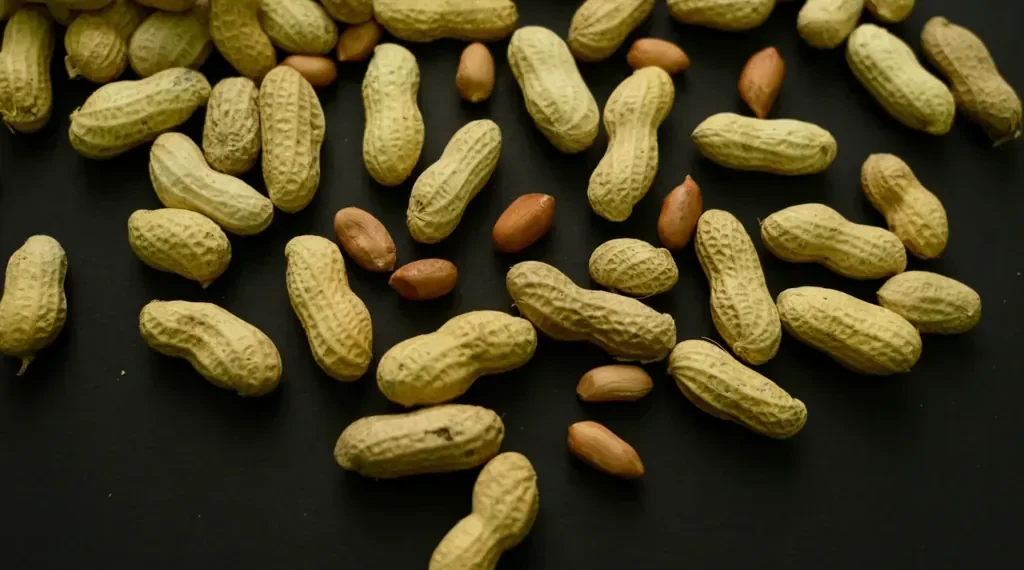A decade after pediatricians began urging parents to introduce peanuts to babies early in life, new research shows the shift has had a major public health impact. A study published Monday in Pediatrics estimates that around 60,000 U.S. children have avoided developing peanut allergies thanks to updated feeding guidelines introduced in 2015.
Study Finds Major Drop in Peanut Allergies Among Young Children
The study, led by Dr. David Hill of the Children’s Hospital of Philadelphia, analyzed electronic health records from dozens of pediatric practices to track food allergy trends before and after the introduction of the new guidance. “That’s a remarkable thing,” Hill said. “There are fewer kids with food allergy today than there would have been if we hadn’t implemented this public health effort.”
Researchers found that peanut allergies in children ages 0 to 3 dropped by more than 27% after the initial 2015 guidance for high-risk infants, and by more than 40% after broader recommendations were released in 2017. While overall food allergy rates in the U.S. continue to rise—now affecting about 8% of children—the data suggest that the peanut-specific trend has reversed course.
Background: How Early Feeding Became the New Norm
For decades, medical advice discouraged parents from feeding peanuts and other potential allergens to children before age 3. That changed after the 2015 Learning Early About Peanut Allergy (LEAP) trial, led by Dr. Gideon Lack at King’s College London, found that introducing peanut-containing foods to infants as early as 4 months old reduced the likelihood of developing an allergy by over 80%. Follow-up research showed the protective effect persisted into adolescence for roughly 70% of children.
The LEAP trial revolutionized pediatric allergy prevention and prompted new guidelines from U.S. and U.K. health authorities recommending early exposure to peanuts for both high-risk and average-risk infants. The guidance was expanded in 2017 and updated again in 2021 to include all major food allergens such as dairy, soy, and eggs.
Slow Implementation Among Pediatricians
Despite the strong evidence, adoption of the early-feeding approach has been uneven. Surveys show that only about 29% of pediatricians and 65% of allergists follow the full 2017 guidelines. Many doctors and parents initially questioned whether introducing allergens so early could be done safely outside of controlled clinical trials.
“The data show encouraging progress, but implementation is still incomplete,” said Dr. Ruchi Gupta, a pediatric allergy specialist at Northwestern University, in a commentary accompanying the study. Gupta noted that the dataset may not fully represent all U.S. pediatric populations but nonetheless provides “promising evidence that early allergen introduction is not only being adopted but making a measurable impact.”
Public Health and Parental Education
Food allergy advocates say the findings are an encouraging sign of progress. “This research reinforces what we already know and underscores a meaningful opportunity to reduce the incidence and prevalence of peanut allergy nationwide,” said Sung Poblete, CEO of Food Allergy Research & Education (FARE), a nonprofit that supports the 33 million Americans living with food allergies.
The updated 2021 guidelines recommend introducing peanuts and other allergenic foods between four and six months of age—without the need for prior screening tests. The approach, experts say, can help the immune system build tolerance safely through gradual exposure.
“It doesn’t have to be a lot of food,” Hill explained. “Small tastes of peanut butter, milk-based yogurt, soy products, or nut butters are good ways to help the immune system learn to tolerate these foods safely.”
From Skepticism to Acceptance: A Parent’s Experience
For many parents, the idea of feeding babies peanuts still feels counterintuitive. Tiffany Leon, a Maryland-based registered dietitian and FARE director, introduced peanuts and other allergens early to her sons, James and Cameron, following the updated recommendations. Initially, her own mother was alarmed by the shift in advice.
“At first, she was shocked,” Leon said. “But as a dietitian, I practice evidence-based recommendations. When I saw the science and the new guidelines, I knew this was the right approach.”
Leon says her experience reflects a growing awareness among parents that early allergen exposure can be both safe and beneficial. “It’s a big change from what we were told years ago, but it’s one that’s making a real difference for kids,” she added.
Why Early Feeding Matters
Peanut allergy occurs when the immune system mistakenly identifies peanut proteins as threats, triggering symptoms that range from hives and breathing difficulties to potentially fatal anaphylaxis. In the United States, about 2% of children have a diagnosed peanut allergy—one of the most common and severe food allergies worldwide.
The success of early feeding in reducing peanut allergy risk has inspired similar research into preventing other common allergies. Scientists are studying whether early exposure to milk, eggs, and tree nuts could offer similar protective effects.
Global Health Implications
Experts say the U.S. experience offers valuable lessons for other countries facing rising allergy rates. The World Health Organization and national pediatric associations in Canada, the U.K., and Australia have adopted similar early-feeding guidance, though implementation remains inconsistent across regions and socioeconomic groups.
“This is one of the few clear examples of a population-level intervention changing the trajectory of a chronic condition,” Hill said. “It shows what’s possible when science, policy, and clinical practice align.”
This article was rewritten by JournosNews.com based on verified reporting from trusted sources. The content has been independently reviewed, fact-checked, and edited for accuracy, neutrality, tone, and global readability in accordance with Google News and AdSense standards.
All opinions, quotes, or statements from contributors, experts, or sourced organizations do not necessarily reflect the views of JournosNews.com. JournosNews.com maintains full editorial independence from any external funders, sponsors, or organizations.
Stay informed with JournosNews.com — your trusted source for verified global reporting and in-depth analysis. Follow us on Google News, BlueSky, and X for real-time updates.













